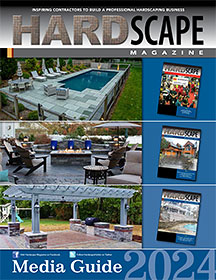Articles Written by Charles Vander Kooi
Theft, Control and the
Appearance of Control
By Charles Vander Kooi
Blue collar theft is, by far, a greater dollar drain on the American economy than any other form of theft. Construction companies, with their many jobs, great quantities of materials, and difficult security problems, become one of the largest victims of this kind of crime. There are many companies that are nothing but a memory simply because they were so terribly ripped off by their own field people.
This is largely due to the fact that in construction we are sometimes forced to hire less-than scrupulous people. But this is certainly not the only reason for theft. In fact, many times, theft is committed by some of our very good people. It often happens because they feel it is an accepted, or even expected, practice by those in this industry. Sometimes they justify it because they feel that you owe it to them and, even though you have not given it to them, you would not mind them taking or borrowing materials and equipment.
Establish Control
To keep theft a minimum, you need to demonstrate to your field know that you are in control. If they believe that you are on top of things, they will be less tempted to take, or to use things that are not theirs.
Real control will happen in those areas where you spend time, money, and effort to keep track of important things. Everyone in your company should know that you are aware of everything about those particular items and that no funny business can occur in those areas without you knowing about it immediately.
Look Like You're in Control
But we all know that in this hectic, fast-moving business, it is virtually impossible to have that kind of control in every area of every job going on in a company. In some cases, it would actually cost more to keep people from stealing things than the things they would steal are worth.
It is in those areas that I feel that you need to come up with inexpensive ways to give the appearance of control. Following are some areas that can be problematic.
- Ghosting employees:
Putting friends or relatives on the payroll who are really not actually working for you. They collect a paycheck and split it with your employee.
- Padding hourly contract people (truckers, backhoes, tractors, labor):
Paying someone more than they want or giving them more hours on their job than they actually worked, then splitting the difference with that contracted person.
- Floating:
Taking too much time for personal business away from the job site, letting workers take too long on breaks, or not producing a fair amount of work in a day.
- Tool and material pilferage:
Using items from the job on their personal property, or selling them to others.
- Equipment borrowing:
Taking your equipment home on the weekend to use at their home or on jobs they have contracted for personally.
- Drug/alcohol use before the job or on the job.
Exorcise Ghosting Employees
It is important that the owner not only sign the paychecks, but that on unannounced occasions, go out to the jobsite and actually pass out the paychecks and see these people face to face.
End Padding Hourly Contract People and Floating
Here are some things you can do in this area:
- All hourly prices should be negotiated by people in management positions and/or the owner, rather than allowing field people to negotiate prices.
- Make unannounced field visits to ensure that people are actually on the job. Be sure to ask how long an hourly contract person has been on the job and is expected to be there. That information should be written down in the person's presence even if you never look at it again.
- The best source of information can be people on the job other than your foreman or supervisor. Again, you do not want to appear that you don't trust them. You are merely seeking information that will give you what you must have; i. e. , control over your company. Even if the information is not used, just the act of collecting it will help keep things under control.
- Job costing both labor and equipment is one of the best ways to control these items. If these items overrun the original estimate, some sort of justification must be made by the field supervisor and/or the estimator.
However, job costing can cause a problem if more hours were estimated than were needed. Field people may use the extra time needlessly, which is theft, really. The solution is to reward those who beat the estimates on a regular basis. If you don't, then you set yourself up for problems. Rewarding people for a job well done is a must if you do job costing.
Stop Tool and Material Pilferage
This is probably the most difficult thing to control on jobs. One sure solution for material is to job cost it. However, this can be expensive for smaller contractors. I believe that every contractor can job cost for labor and equipment, but that only larger companies that can afford it should job cost material.
Whether you do material job costing or not, you should have someone (preferably the owner) look over the invoices and, again, ask questions of certain people that gives the appearance that you are in control of what material goes to what jobs. Also, this same person should make spot inventory checks (on the jobs) for the materials that were ordered and for what was actually installed.
Rush Purchase Orders Tell Tales
Another system I recommend uses 2 types of purchase orders. I recommend that a larger purchase order be used for the original purchases of material shown in the job estimate.
Then, all field people should be given another, smaller purchase order with a different numbering system. These are used whenever they need to order or pickup something in a hurry.
Whenever a smaller purchase order is used, a red flag should go up in your mind. It means that the estimator missed the quantity, or that something has been stolen, or that, possibly, a change order needs to be issued.
Though it can be a hassle, all your suppliers and employees need to know that nothing can be purchased over $25 without a purchase order. Your attention to these types of details will help you eliminate pilferage.
Prevent Equipment Borrowing
Many times, borrowing is an accepted practice within your company. But if you do not have some policy as to how and when an employee can borrow a piece of equipment, it can get away from you very quickly. And even with a policy, some equipment can be borrowed without permission.
Job costing for the hours certain pieces of equipment are used on jobs can help reduce this problem. When you go on jobs, look over equipment for signs of abuse and proper maintenance. Also write down the hour meter, or mileage readings. Whether you use this information or not, the appearance of monitoring these things helps reduce problems.
Eliminate Drug/Alcohol Use before the Job or on the Job
I'm finding more and more companies around the country are taking tougher stances on drug/alcohol issues. Some do not allow any drinking on the job even after the day is over. They are worried about potential lawsuits if an employee is in an accident after what appears to be company-sponsored (or condoned) drinking. Plus, they want to make it unambiguously clear that there is to be no drinking on any job at any time.
Many companies are also instituting mandatory drug testing prior to any person being hired. This does not completely ensure a drug-free workforce, but it does send a message that is heard loud and clear by everyone. Be sure to consult your attorney about establishing and carrying out this policy.
Remember, honesty in the field depends on your level of control. Make every effort to control those things you can control feasibly and economically. For other things, find ways to at least give the appearance of control.













